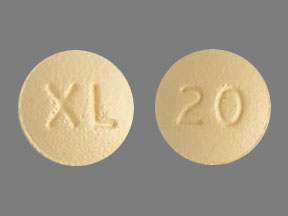Cabometyx Interactions
There are 539 drugs known to interact with Cabometyx (cabozantinib), along with 8 disease interactions, and 2 alcohol/food interactions. Of the total drug interactions, 325 are major, 210 are moderate, and 4 are minor.
- View all 539 medications that may interact with Cabometyx
- View Cabometyx alcohol/food interactions (2)
- View Cabometyx disease interactions (8)
Most frequently checked interactions
View interaction reports for Cabometyx (cabozantinib) and the medicines listed below.
- albuterol
- amlodipine
- aspirin
- atorvastatin
- benzonatate
- carvedilol
- dexamethasone
- docusate
- Eliquis (apixaban)
- famotidine
- Flomax (tamsulosin)
- gabapentin
- levothyroxine
- losartan
- metformin
- metoprolol
- omeprazole
- ondansetron
- Opdivo (nivolumab)
- oxycodone
- pantoprazole
- prednisone
- Prilosec (omeprazole)
- prochlorperazine
- sildenafil
- tamsulosin
- tramadol
- Vitamin D3 (cholecalciferol)
- Xgeva (denosumab)
- Zofran (ondansetron)
Cabometyx alcohol/food interactions
There are 2 alcohol/food interactions with Cabometyx (cabozantinib).
Cabometyx disease interactions
There are 8 disease interactions with Cabometyx (cabozantinib) which include:
- hemorrhagic events
- GI perforation
- hepatic impairment
- hypertension
- renal impairment
- RPL syndrome
- thromboembolism
- lung toxicity
More about Cabometyx (cabozantinib)
- Cabometyx consumer information
- Compare alternatives
- Pricing & coupons
- Reviews (12)
- Drug images
- Side effects
- Dosage information
- Patient tips
- During pregnancy
- FDA approval history
- Drug class: multikinase inhibitors
- Breastfeeding
- En español
Related treatment guides
Drug Interaction Classification
| Highly clinically significant. Avoid combinations; the risk of the interaction outweighs the benefit. | |
| Moderately clinically significant. Usually avoid combinations; use it only under special circumstances. | |
| Minimally clinically significant. Minimize risk; assess risk and consider an alternative drug, take steps to circumvent the interaction risk and/or institute a monitoring plan. | |
| No interaction information available. |
See also:
Further information
Always consult your healthcare provider to ensure the information displayed on this page applies to your personal circumstances.


